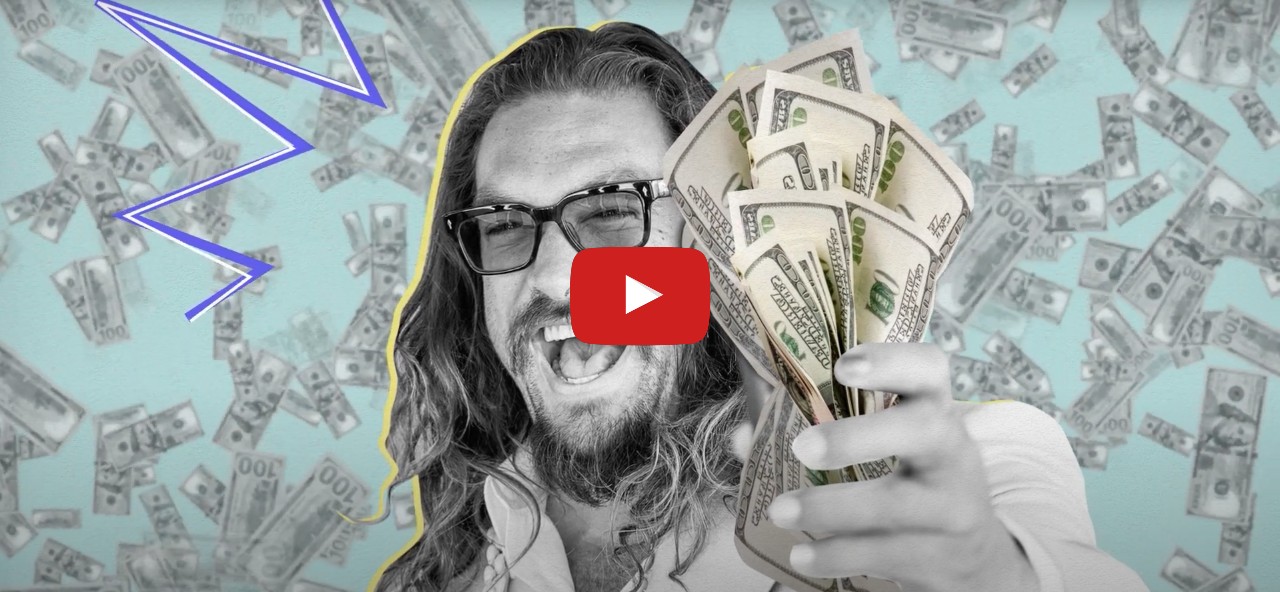What’s Going On?
Jason Momoa—an actor well-known for roles in movies like Aquaman and Dune—went viral after shocking fans by shaving the sides of his iconic long hair. In the video stunt to promote his own packaged water company, Momoa suggests that water in aluminum cans is more environmentally friendly than water in plastic bottles. But would switching from plastic to aluminum really help save the planet? Nope. Not even close.
Analysis from the Washington Free Beacon: Anti-Plastic Actor Loves Plastic Water Bottles, Analysis Finds


Take a look at the facts:
- According to the Danish Environmental Protection Agency, plastic water bottles are the most environmentally friendly containers. Made of ultra-thin multi-use PET plastic, these bottles are not “single use.” They are recycled into a variety of other products including new bottles.
- A recent study from McKinsey and Company finds the process to make aluminum cans–like Momoa’s product–emits roughly twice as much carbon dioxide per container as the production of plastic bottles.
- According to the Keep America Beautiful organization, aluminum beverage containers are littered five times as much as plastic water bottles in the U.S.
- The process of mining and creating aluminum is dirty and environmentally unfriendly. The metal is sourced from bauxite ore harvested from strip mines. These open-faced mines spew thick red dust into the air that is linked to health problems and has prompted riots in less-developed countries.
- The trash in the ocean does not come from the United States. Americans are responsible for less than one percent of the mismanaged plastic waste in the ocean. More than 90 percent of this ocean trash can be traced back to just 10 rivers in Asia and Africa.
- The Great Pacific Garbage Patch consists mostly of abandoned fishing gear – much of which was pulled to sea by the tsunami that hit Japan in 2011. It is not bottles, straws, or bags.
- Not all plastics are created equal. Plastic bottles are made of PET plastic, identified by the #1 in the chasing arrows symbol. PET plastic is highly recyclable and can be used to make anything from playground equipment to new bottles. This differs greatly from plastics that cannot be easily recycled, such as polystyrene foam or plastic straws.
- Many plastic items are essential for supporting public health and safety such as gloves, masks, and syringes. Bottled water is also essential. FEMA recommends storing one gallon of bottled water per person per day for emergencies.
Diving into Mananalu, Jason Momoa’s packaged water company:
- Momoa’s water is packaged by Ball, a glass and aluminum manufacturer. In fact, Ball owns 49 percent of the company. Momoa has even worked as a brand ambassador for Ball’s other products.
- Ball has a long record of environmental destruction. In 2006, a whistleblower inside the company warned that Ball was working to cover up a chemical spill in New York. By 2010, it was revealed that Ball’s factory had been violating the town’s environmental code by dumping more fluoride into the Wallkill River. Ball had negotiated a “hand-shake” agreement with local officials to do the fluoride dump. The New York Department of Environmental Conservation eventually cited Ball for the spill.
- In 2010, Ball was rated the 65th worst air polluter in America by the University of Massachusetts.
- Ball gets its aluminum materials from China, the world’s largest polluter. The company argued against aluminum tariffs imposed on China because the minerals harvested under the Chinese Communist Party are an “important component” of its production. China is not the only international country with which Ball has ties. Ball employees were caught attempting to bribe officials in Argentina.
- Momoa ships his bottles using Amazon. Orders travel cross country from Mananalau’s facilities in North Carolina. That’s a lot of fuel for transportation. Even more interesting is the fact that Mananalu bottles are packaged in plastic bubble wrap.

